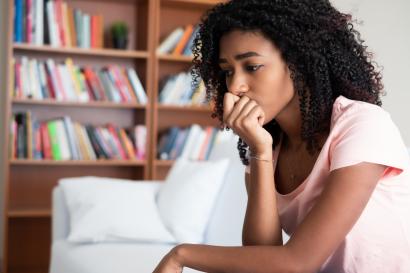
What is Depression?
Depression is a mood disorder that affects your thoughts, feelings, and behavior and causes people to experience overwhelming and persistent feelings of sadness. It is one of the most common mental disorders in the United States and it affects millions of people. Depression is more common in females.
What are the Symptoms of Depression?
Depression is characterized as having five or more depressive symptoms over a two-week period. These symptoms cause significant impairment in daily life and are felt nearly every day over a two-week period. Symptoms can include:
- Irritability
- Anger outbursts
- Decreased interest or pleasure in activities that you normally find fulfilling and enjoyable
- Weight loss
- Weight gain
- Sleeping too much or too little
- Lack of motivation
- Low energy level or fatigue
- Feelings of worthlessness
- Poor concentration
- Difficulty making decisions
- Suicidal thoughts, with or without a plan
- Restlessness
- Poor hygiene
- Isolation
- Feelings of helplessness and/or hopelessness
- Low self-esteem
What Causes Depression?
Depression can be the result (or a combination) of biological, psychological, and social factors.
- Biological factors include: genetics, brain chemistry, hormone level, and gender.
- Psychological factors include: negative thinking patterns such as overthinking a stressful situation or taking on a belief that you have no evidence to support.
- Social factors include: death of a loved one, divorce, trauma, isolation, loss of a job, and financial difficulties.
How is Depression Treated?
The good news is that depression is easily treated. Most people respond well to a combination of medication and talk therapy. Examples of therapeutic treatment methods most commonly used to treat people diagnosed with depression include:
Cognitive Behavioral Therapy (CBT) is a form of talk therapy that focuses on addressing negative thinking patterns and behaviors that contribute to depression.
Interpersonal Therapy (IPT) is also a form of talk therapy that seeks to decrease depressive symptoms by improving the quality of interpersonal relationships and social functioning.
Electroconvulsive Therapy (ECT) may be a treatment option for cases where less invasive treatments have not been successful. It is a procedure performed under anesthesia by a psychiatrist. Small electric currents are passed through the patient’s brain to trigger a brief seizure, which helps to alter brain chemistry to lesson or reverse symptoms of depression.
How Can I Help My Loved One?
- Let your loved one know that you care. Ask questions, listen with empathy, and validate their feelings.
- Help your loved one find professional support.
- Once they find support, encourage your loved one to stick with treatment.
- Take care of yourself by setting healthy boundaries and practicing self-care.
- Learn as much as you can about depression so that you better understand what your loved one is experiencing.
- Stay in touch and involved with your loved one.
- Do not allow your loved one to isolate themselves from their support system.
- Be patient with your loved one.
Where Can I Go to Get Help?
Scheduling an appointment for an evaluation with a professional mental health therapist is a good place to start. To schedule an appointment call Brook Lane’s Intake/Admissions Office at 301-733-0330.
2-1-1 Maryland is a statewide resource available by telephone and internet to connect residents to health and human resources. They can assist in finding therapeutic resources anywhere in Maryland.
The National Alliance on Mental Illness (NAMI) is an excellent resource that offers support to family caregivers and patients. They also offer support groups for caregivers, family members, peer-to-peer, and patients as well as providing educational resources. NAMI can be reached at 410-884-8691. NAMI has offices throughout Maryland, Delaware, Pennsylvania and Virginia.
Emergencies: If someone you love is suicidal, call 911 or take them directly to the nearest emergency room for immediate help. The Maryland Suicide Hotline, 1-800-422-0009, is also a helpful source.
Shawn Burke, LCSW-C is a licensed clinical social worker providing therapy for children, adolescents and adults in Brook Lane’s hospital. She has over 16 years of experience working with children, adolescents and adults, 13 years of which were spent in the field of child welfare. Shawn is a graduate of the University of Maryland School of Social Work. She holds a Master’s Degree in Social Work and a Master’s Degree in Mental Health Counseling from Wright State University in Dayton, Ohio.

